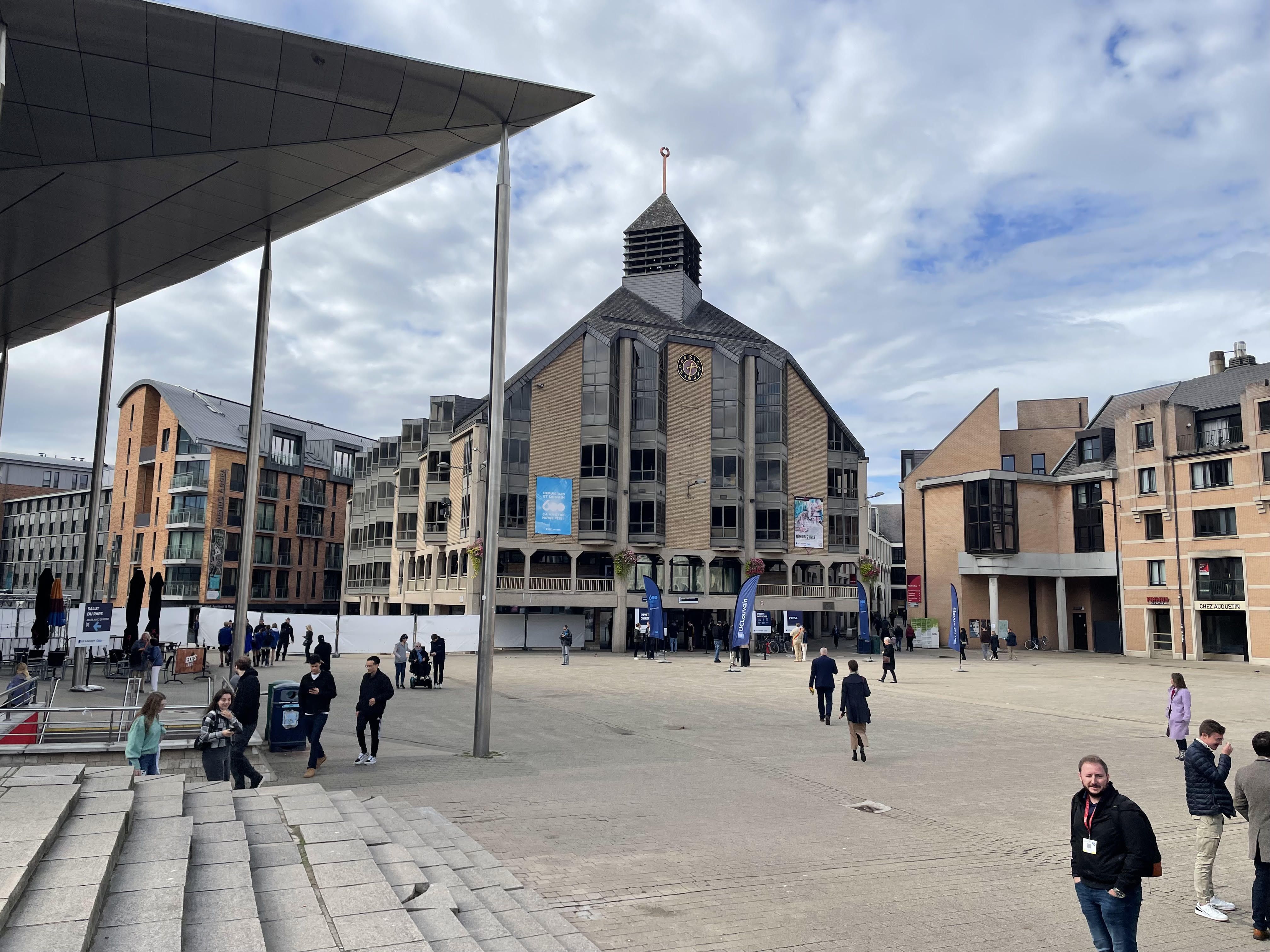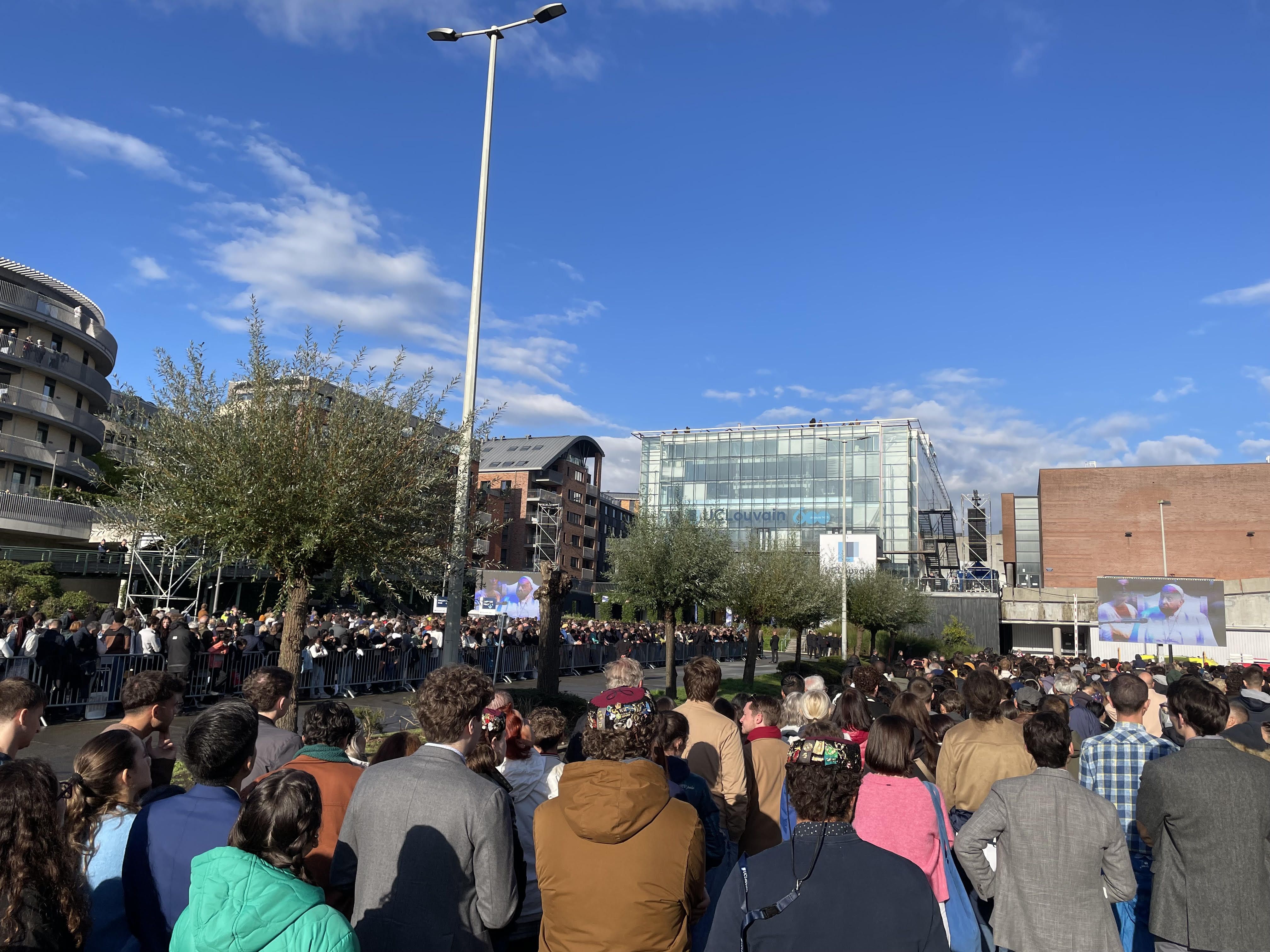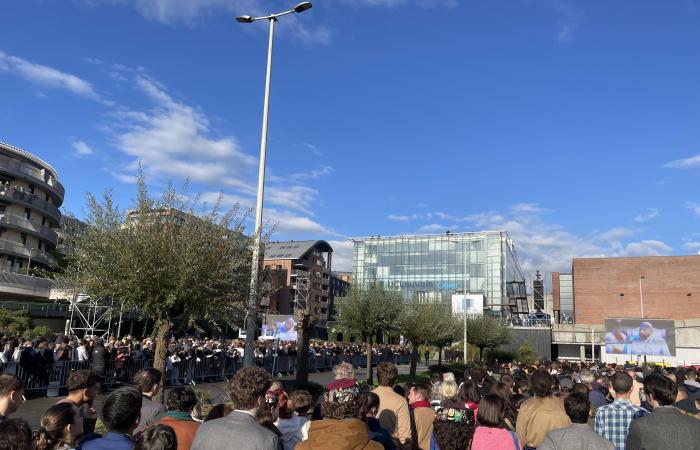The carillon rings on the Grand Place in Louvain-la-Neuve for longer than usual. But for those who listen, it doesn’t just ring: it plays a whole repertoire of religious songs! From the classics Alleluia by Händel to the songs of Taizé, via the “Ave Maria” from Lourdes, to “How not to praise you”, which had created a buzz on social networks recently. In the streets of the new pedestrian university town, students in ceremonial dress, capes flying in the wind, flag in hand and pine-covered caps screwed on their heads advance with sure step towards the Aula Magna where the conference will be held. meeting with Pope Francis. Many children and all kinds of scouts are strolling between sunshine and showers on this Saturday afternoon.
It is a prestigious institution in Belgium that receives the Pope: the Catholic University of Louvain can pride itself on being one of the best-known European universities. Et for good reason: ranked among the 12% of the best universities in the world, it is also one of the oldest universities. Ffounded in 1425, it has been training minds for 600 years. It is precisely this anniversary that Pope Francis is coming to celebrate on September 27 and 28.
A rich history
Splendid buildings, testifying to the very long history of the place, others more recent, all crossed by countless young students. It is a special university that Pope Francis decided to come and visit. Created on December 9, 1425 by a bull from Pope Martin V at the request of the Duke of Brabant, the university was established in the current locality of Leuven (Leuven), near Brussels. It very quickly became one of the rare so-called “complete” universities, that is to say which offered all the training possible at the time: faculties of medicine, law and arts. His catalog grew, and some of his students made history: Erasmus is the best known, but also Vesalius in medicine or Mercator in cartography, up to the Nobel Prize in Medicine in 1974, Christian de Duve. Closed then reopened in the 18th century at the discretion of the French or Dutch occupants of the region, the university kept its name of Catholic University of Louvain during its last reopening during the independence of Belgium in 1830.
The university split in two
After the Second World War, the number of students grew exponentially with the democratization of studies. If the language of the university has long been French, the language of the elite, the influx of Flemish-speaking students is causing increasing tensions. They claim their right to be trained in their mother tongue, the university being on Flemish territory. In 1968, the break was complete: the university was then split in two, the Flemish-language KULeuven remained in Louvain, and the Catholic University of Louvain moved to a new town created for the occasion, Louvain-la-Neuve .

The Catholic identity of the institution in question
If the university shines academically, as well as through the quality of its research, its Catholic identity is declining: evidenced by the change of name in favor of the more discreet “UCLouvain”. The logo representing the Virgin Mary and Jesus has disappeared, and the English name simply ignores this aspect (“University of Louvain”). Strong internal debates and numerous petitions had in fact called for distancing from the Catholic dimension of the university. Asked about this question, the rector of the university, Françoise Smets, quickly explained that the “C” stands for “the values of openness, freedom and commitment”. As for the presence of a renowned theology faculty in each of the institutions, it would be “a reflection of the diversity of the study of religions”.

A sincere dialogue
However, the two universities joined forces to jointly invite Pope Francis. A strong sign of the interest that academics have in the Pope’s thoughts on the reception of migrants (Fratelli Tutti) and environmental issues (Laudato Si). If the exchanges were rich and sincere, a sticking point remains: the place of women in the Church on which the students did not have the feeling of having been heard.
Before letting the sovereign pontiff leave the university, the students concluded their warm welcome with a loud standing ovation, and presented a personalized skullcap to the pope.









